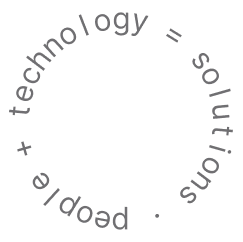Ethical SEO


Even More Difficult
What is Ethical SEO?
At AMDT, when we talk about Ethical SEO, we refer to the fact of using ethically correct SEO practices. That is, practices that respect the rules and recommendations established by search engines. This way, we ensure that our clients’ websites will not only avoid penalties, but will also be rewarded with an improvement in their organic positioning in the search engine rankings.
For this reason, SEO team at AMDT works solely and exclusively in accordance with our commitment to ethical SEO. This means that they will only use those SEO techniques that are recommended by search engines, always avoiding those that may be questionable due to their lack of ethics, transparency or that may be penalised by Google or any other search engine. This is also known as ‘White Hat SEO’.
At AMDT, when we talk about Ethical SEO, we refer to the fact of using ethically correct SEO practices. That is, practices that respect the rules and recommendations established by search engines.
Read more >
This way, we ensure that our clients’ websites will not only avoid penalties, but will also be rewarded with an improvement in their organic positioning in the search engine rankings.
For this reason, SEO team at AMDT works solely and exclusively in accordance with our commitment to ethical SEO. This means that they will only use those SEO techniques that are recommended by search engines, always avoiding those that may be questionable due to their lack of ethics, transparency or that may be penalised by Google or any other search engine. This is also known as ‘White Hat SEO’.
Ethical SEO VS. Unprofessional Ethics
There are many ‘bad practices’ when it comes to SEO, also known as Black Hat SEO. Their aim is to achieve the best positioning as quickly as possible, using techniques that do not respect the rules of search engines, nor any kind of ethical SEO. Consequences of using them: search engines end up detecting it and penalising the website quite severely, ultimately achieving the opposite effect of what was intended.
These techniques try to deceive search engines in order to climb up the ranking, even if it is at the cost of skipping any kind of ethical SEO. Some of the most commonly used techniques are: keyword stuffing, content duplication, cloaking, invisible text, and link farms, but there are many others.
Our advice: don’t give in to temptation. Although it may yield positive results in the short term, in the end your website will ultimately suffer the consequences of not following the rules. If you want reliable results in the medium and long term, you need to rely on professionals who work with good SEO ethics.
Why Work with Ethical SEO?
Working with ethical SEO in all our services offers several advantages:
- Peace of mind that you will not suffer penalties from search engines, as all their rules and recommendations are followed.
- The stability that comes from achieving a secure positioning, which will not be affected at any time because the search engine has identified the use of bad practices on your site.
- The generation of economic benefits, as the use of White Hat SEO techniques allows for an increase in high-quality organic traffic to our clients’ websites. This translates into an increase in conversions. More sales = More income.
And the best part is that the advantages of working with ethical SEO remain in the medium to long term. In contrast, unethical SEO may achieve short-term benefits, but in the medium and long term, it will end up being detrimental to your positioning. Why take risks when you can benefit from all the advantages of working with an ethical SEO consultancy?
Ethical SEO as an Added Value in All Our Services
At AMDT consultancy, we offer in all our services the added value of professional ethics, that is to say, Ethical SEO. Our SEO team undertakes the obligation to use appropriate and legal technologies and methodologies to improve and maintain the ranking of its clients subject to changes in search engine technology, competition and the needs of the client’s website.
Even More Difficult
Our Commitment to Ethical SEO
- We will never use an SEO practice that could intentionally harm a client, such as causing their website to be removed from search engine indexes or disabling it.
- We will always respect the rules established by search engines and avoid any practice that does not comply with them.
- We will faithfully comply with all laws related to reserved rights and intellectual property, as well as those related to spamming, both nationally and internationally.
- We will always present both the content and the positioning of our clients’ websites in a completely truthful manner.
- We will never present as our own any work done by another company or SEO professional.
- None of our SEO team members will falsely represent their skills, education, experience, certifications, or affiliations in any way.
Read more >
- If a potential conflict of interest situation arises between our clients, each of the parties involved will be informed before any action is taken. All our clients will be treated equally and are of equal importance to us.
- We will not create unrealistic expectations for any of our clients. Honesty is part of the DNA of our AMDT consultancy.
- We will facilitate all necessary procedures for the resolution of disputes, both internal and external.
- The confidentiality and anonymity of our clients will always be our priority. We will never publish elements that could involve them without their explicit consent, such as testimonials, logos of their property, press releases, etc.
- Our SEO professionals will use all the methodologies at their disposal to improve or maintain the ranking of their clients’ sites, always within the law and the best practices recommended by search engines.
This is the ethical SEO commitment we always assume in AMDT with all our clients.
Even More Difficult
How Do We Apply Ethical SEO at AMDT?
These are some of the ethical SEO practices that we use in our AMDT consultancy to improve the organic positioning of our clients’ websites:
- We research the keywords or key words that your potential clients search for the most in order to use them in texts, images, headings, etc.
- We create original, high-quality and useful content for readers.
- We optimise the mobile version of your website, as this is what Google uses as the basis for its index.
- We improve the loading speed, which not only helps with search engine positioning but also enhances the experience for users visiting your website.
- We organise the structure of the website so that it is clear and easy to navigate for both users and Google’s crawlers, which will give you positive points.
- We establish a natural link-building strategy to encourage traffic to your pages.
And more, much more. This is just a small example of what our SEO team can do to help your business move up the results page rankings and improve your positioning by working with an ethical SEO.


Even More Difficult
Frequently Asked Questions
What is keyword stuffing?
Keyword stuffing consists of introducing a keyword or keyword repeatedly and excessively in a text so that the search engine positions us for it. This makes the text difficult for users to read and lacks quality, something that search engines penalise.
What is content cuplication?
Content duplication is another type of practice that deviates from ethical SEO. It consists of plagiarising articles or posts from other more popular websites or blogs to attract traffic. It is basically a copy-and-paste job.
A variant of this is ‘spinning’, which is based on using programs that are capable of generating several different texts from a single article. How do they do it? By introducing small changes, such as swapping certain words for synonyms.
Both cases are penalised by search engines, which is why at AMDT we always rely on professionals specialised in the creation of unique, original and quality content, who respect our ethical SEO practices.
What is cloaking?
Cloaking in SEO is a practice penalised by Google that involves showing different content to search engines and users who visit a website. The aim of this technique is to manipulate search results and improve the positioning of a web page in the search engines by deceiving the algorithms about the relevance and quality of the presented content.
What is invisible text?
Invisible text, also known as ‘hidden text’, is another practice that bypasses ethical SEO. It involves hiding keywords or content on a web page so that visitors cannot see it, but search engines can. The purpose of this technique is to try to improve the ranking of a web page in search results by including more content without affecting the appearance or readability of the content for users.
What are link farms?
Link farms are a set of web pages that are specifically created to establish reciprocal links among themselves with each other in order to manipulate search engine algorithms and improve the ranking of the involved pages. This practice is considered a fraudulent SEO technique and goes against the quality guidelines established by major search engines.
Verified opinions
What do they say about us?
Publicado en
Our warranty
Our customers
